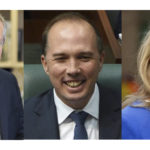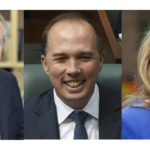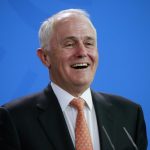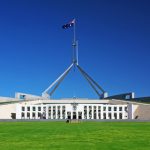Sports Rorts Scandal: A Coalition ‘Slush Fund’
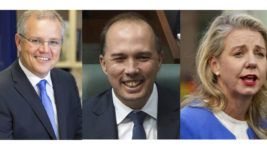
Calls of ‘corruption’ and ‘misuse of public funds’ have come from far and wide, but Prime Minister Scott Morrison continues to reject evidence which suggests that the government’s sports funding program was improperly used to enhance its prospects of winning marginal seats in the lead up to the 2018 federal election.
Now, more than 130 emails between senior staff members have come to light which suggest just that – that the allocation of funds was to marginal and other ‘targeted’ electorates rather than based on merit.
The story so far
When the ‘sports rorts’ scandal hit the headlines a few weeks ago, accusing the Federal Government of using money allocated for community grants to ‘buy votes’ in targeted election areas, the PM was quick to disassociate himself from any wrong doing, saying that his staff simply made ‘suggestions’ about where money should be channelled and that final decisions were the responsibility of Senator Bridget McKenzie, who has since stood down from the role.
Around the same time, a senate inquiry heard nearly half – 43% of projects which were awarded grants in the lead up to the 2019 federal election were not eligible for the money.
In many cases, the projects ticked off by Sports Australia were found to have fallen short of the selection criteria – and funds were allocated to marginal electorates, the inference being that this was done to enhance the prospects of Coalition MPs in those electorates keeping their seats.
Damning evidence
Since the scandal broke, the Auditor-General has stepped in, and there is currently a senate inquiry underway. Recent investigations by the Australian National Audit Office (ANAO) shed new light on the extent of contact between the PM’s office and the ministerial staff, including, Bridget McKenzie, who created a colour-coded spreadsheet to help decide grants.
Labor has declared the scheme corrupt on the grounds the spreadsheet tracked applications according to their electorate and thereby used taxpayer funds to help the Coalition win seats at the last election, a claim the government denies.
And while the PM has consistently suggested that his team had some interest in the programme, the extend of the emails suggests his staff had more than ‘some interest’. As some have already suggested, the sheer volume of emails shows active collaboration.
ANAO has discovered 136 emails between the Prime Minister’s office and Senator McKenzie’s office about the program in the six months before the election last year. The emails involved key staff members in Mr Morrison’s office and also in Senator McKenzie’s office.
The details from ANAO counter some of the claims made about the program by Phil Gaetjens, the Secretary of the Department of Prime Minister and Cabinet and Mr Morrison’s former chief of staff. While Mr Gaetjens said he was told Senator McKenzie never saw the colour-coded spreadsheet, the ANAO revealed she had attached part of the document in direct correspondence with Mr Morrison.
“On 10 April 2019 the minister wrote to the Prime Minister attaching printouts of two worksheets within the spreadsheet – the list of projects she intended to approve for round three funding and the worksheet with the summary tables (of distribution by state, political party and electorate),” the ANAO alleges.
The ANAO also says that Senator McKenzie signed a formal brief to Sports Australia with a printout from the spreadsheet to ensure her decisions on the grants took priority over the of the independent agency.
Furthermore, Mr Boyd told a senate inquiry that Senator McKenzie “maintained the spreadsheet at all times”, and the document was under continual revision. Sometimes, Boyd said, the prime minister’s office made representations, “but not all of those representations led to a change”.
But at other times those “representations” led to concrete outcomes. “For example, when I referred to one project coming out and one project coming in, in terms of the 8.46am version, that was at the request of the prime minister’s office”.
What happens next?
What all of this testimony and evidence mounts up to is the simple fact that criticisms being levelled at the government about the fairness of the allocation of the money, as well as the independence and integrity of the decision-making appear to be very well-founded.
What happens next is not certain, as The PM and is key advisors continue to insist no wrongdoing whatsoever despite mounting evidence to the contrary.
Will history repeat?
Those with a keen interest in political history may remember a similar scenario in 1994 that led to Sports Minister Ros Kelly’s political demise.
Ms Kelly had been a key player in Paul Keating’s government, but after being unable to credibly explain the distribution of $30m worth of federal sporting grants to marginal electorates held by Labor, she faced backlash which led to her eventual resignation. This triggered a by-election which delivered an unexpected win to the Liberals in the normally comfortable Labor seat of Canberra. Two years later, in 1996, the Liberal Party won the federal election by a landslide, making John Howard the Prime Minister of Australia.
In the meantime, the senate inquiry continues and several programmes remain under scrutiny: Building Better Regions fund, Female Facilities and Water Safety Stream programs, Community Sport Infrastructure program, Safer Communities fund, the Stronger Communities program, and Community Development grants.
Data shows the government awarded about $200 million in grants in the lead-up to the election, (between December 2018 and May 2019), with 156 of the 166 grants announced two months prior to the election being awarded to seats the Coalition was targeting.
This is by any means, a significant chunk of tax payer funds, which should have been allocated according to appropriate guidelines and with consideration for both original intended purpose and desirable outcomes, and yet the PM continues to try to play down the issue, brush it aside even.
This seeming disregard could potentially be a mistake come election time. As vastly conflicting versions of how grants were allocated keep coming to the fore, voters will be left to make up their own minds about which version they believe.


